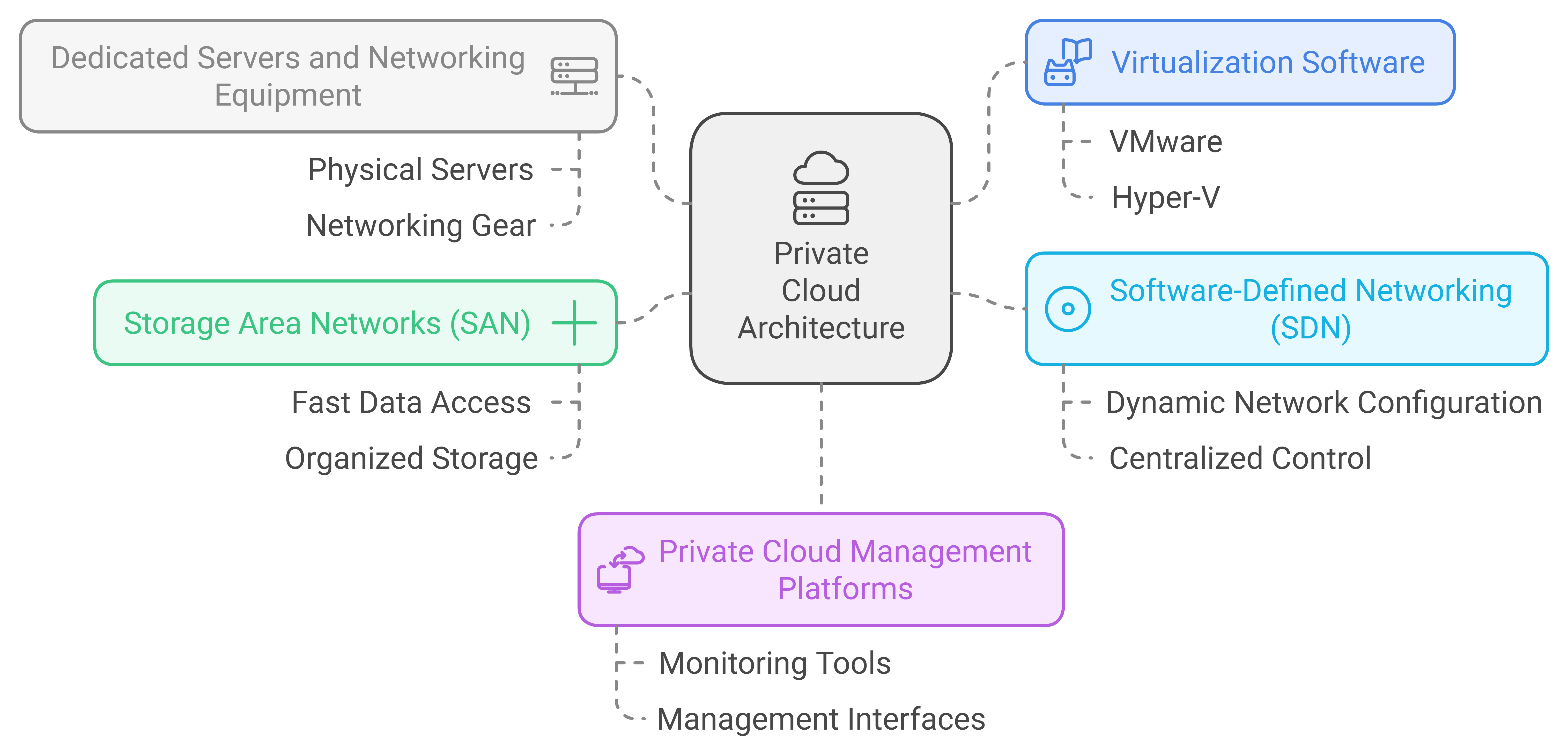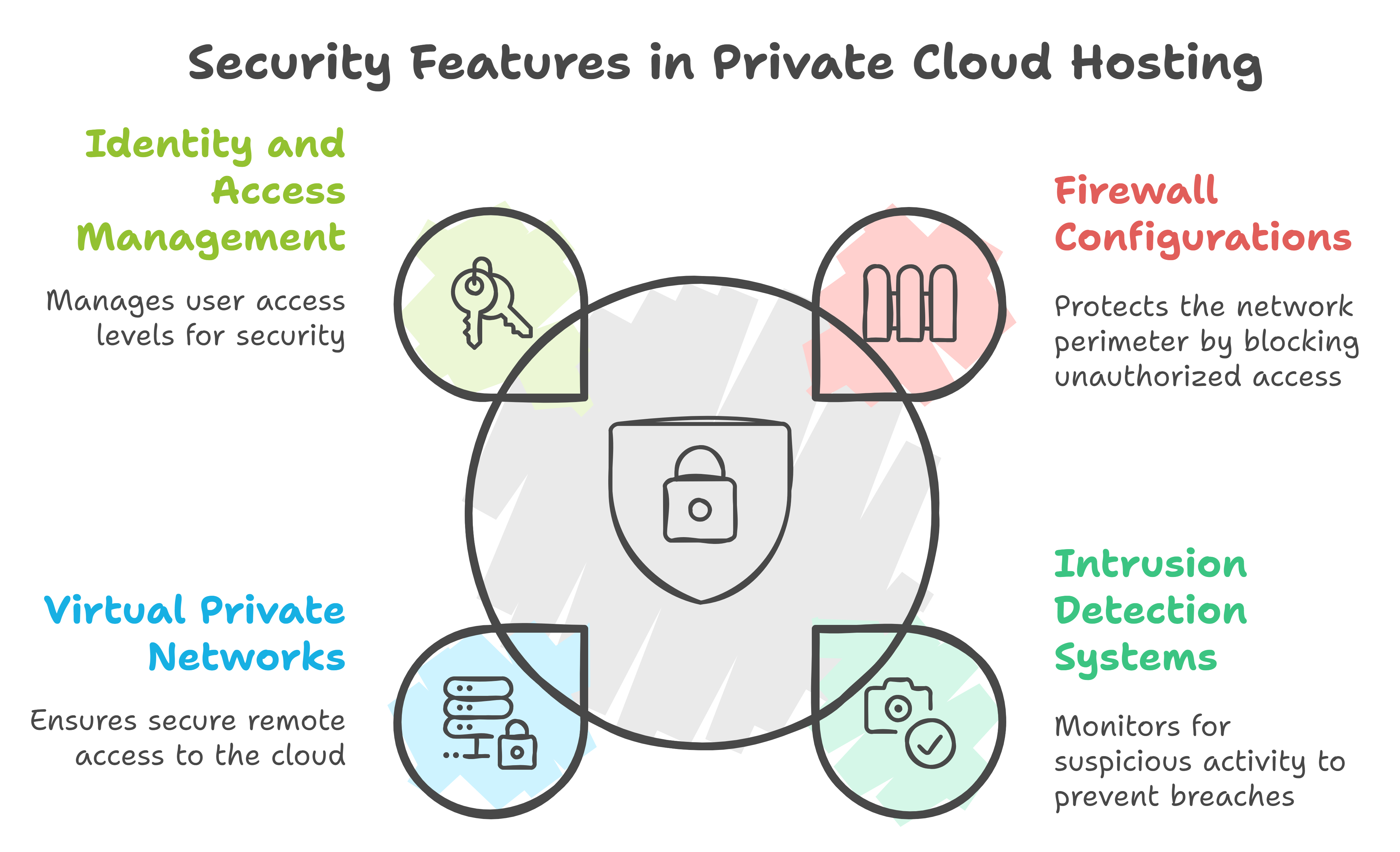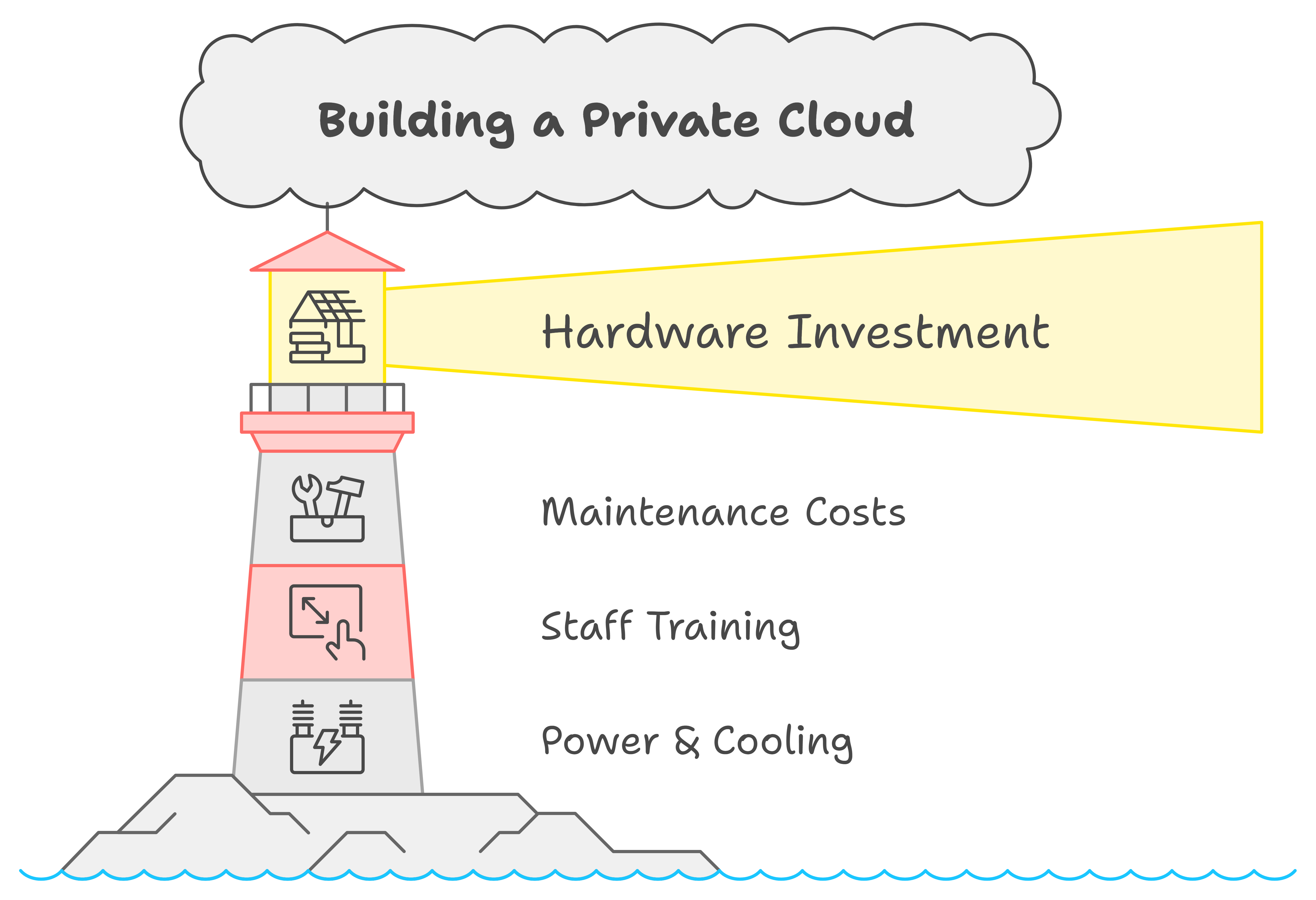What is Private Cloud Infrastructure? A Simple Explanation for Everyone
Imagine having your own private swimming pool in your backyard. Only you and your family can use it, you decide who gets in, and you maintain it yourself.
A private cloud infrastructure is just like that, but instead of water, it’s your organization’s data and applications. It’s a cloud environment dedicated exclusively to you, providing total control, stronger security, and customized options.
Understanding Private Cloud Hosting in Simple Terms
Think of a private cloud as your own personal storage and computing center, but with all the perks of cloud technology. Here’s what makes private cloud hosting special:
- Complete Control Over Resources: Just like having your own kitchen where you make all the decisions, a private cloud means all the computing power is just for your organization.
- Dedicated Cloud Server: It’s like owning your own car instead of using a taxi—you don’t share it with anyone else.
- Customized Security Protocols: You can lock things up however you want, just like setting up locks and alarms in your home.
- Compliance-Friendly Environment: If you need to follow special rules, like wearing safety gear on a worksite, a private cloud makes it easier to meet cloud security compliance requirements.
How Private Cloud Architecture Works? (A Friendly Technical Dive)
A private cloud infrastructure is built using some key pieces of technology, just like building a house:
Private Cloud Key Components
- Dedicated Servers and Networking Equipment: Imagine these as the foundation and walls of your house. They’re the physical parts that hold everything up, and only your organization gets to use them. This dedicated cloud server setup is key for enterprise private cloud environments.
- Virtualization Software: This is like adding rooms to your house without changing the outside—software like VMware or Hyper-V helps create multiple virtual environments inside the same physical space.
- Software-Defined Networking (SDN): Think of this as having a smart home system that lets you change how your home network works with the touch of a button.
- Storage Area Networks (SAN): Like a big storage closet where everything is organized and easy to find—SAN provides fast access to all your data.
- Private Cloud Management Platforms: Tools like your home’s central control panel—used to manage, monitor, and adjust all the different parts of your private cloud infrastructure.
Private Cloud Security Features
- Custom Firewall Configurations: Similar to putting up a fence around your property, firewalls keep unwanted visitors out.
- Intrusion Detection Systems (IDS): This is like having security cameras that watch for suspicious activity.
- Virtual Private Networks (VPN): Imagine a secret tunnel from your house to your office—VPNs let people access the virtual private cloud (VPC) securely from anywhere.
- Identity and Access Management (IAM): Like giving specific keys to family members—each person has their own level of access.
Real-Life Examples of Enterprise Private Cloud Solutions
Banking Sector Example
Imagine a big bank setting up its own private cloud infrastructure, similar to how a bank has a vault that only its staff can access. They use it to:
- Run important banking systems safely.
- Protect customer information with extra layers of security.
- Make sure they follow regulations like GDPR and PCI DSS for cloud security compliance.
- Keep data within certain locations for legal reasons.
Healthcare Example
Hospitals use private clouds just like how they securely store patient files in locked cabinets. A private cloud helps them:
- Manage and store Electronic Health Records (EHR) safely.
- Keep medical images secure and easily accessible for doctors.
- Protect sensitive patient data to comply with regulations like HIPAA.
- Host healthcare applications used by doctors and nurses, ensuring enterprise private cloud security.
What About the Costs of Private Cloud Hosting?
A private cloud comes with certain costs, similar to owning a house:
- Initial Hardware Investment: Just like buying the land and building a house, you need to buy the servers and networking gear for your on-premises cloud.
- Ongoing Maintenance Costs: Similar to fixing a leaky roof or maintaining a garden, you have to keep the hardware running smoothly.
- Staff Training and Expertise: It’s like hiring specialists to fix things or help with maintenance—you need IT experts to manage the private cloud.
- Power and Cooling Expenses: Just like paying for electricity and air conditioning, dedicated servers require power and cooling to keep them running.
Summary
A private cloud infrastructure is like having your own dedicated space in the digital world. It gives you the control, privacy, and flexibility that’s perfect for organizations needing to secure their data and ensure compliance—especially in industries like banking and healthcare.
Private cloud architecture offers enhanced cloud security compliance and dedicated resources that make it ideal for enterprise use. While it requires investment, the control and security make it worth it for those who need it.
Is your organization ready for private cloud hosting?
Think about your data security, compliance needs, and how much control you want over your digital space before making the move.










